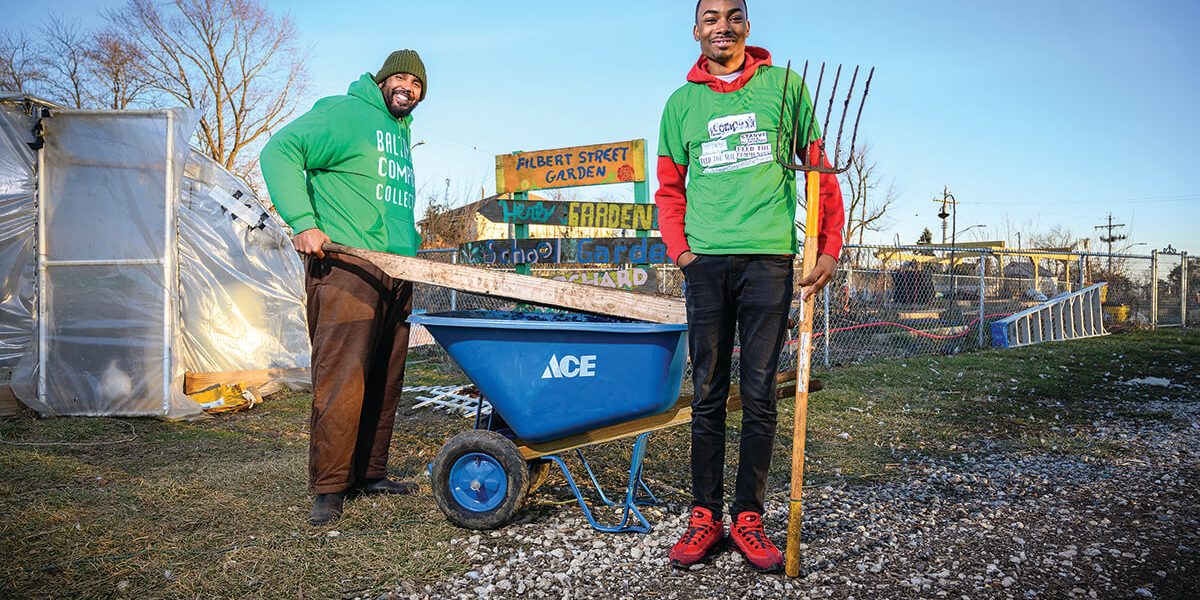News & Community
Learn, Don't Burn
The Baltimore Compost Collective digs into South Baltimore.
When Kenneth Moss was 6 years old, he grew his first tomato at the Filbert Street Community Garden. Now, a decade later, the Benjamin Franklin High student, pictured right, gives back to the soil with the Baltimore Compost Collective, a local service that collects food scraps from South Baltimore neighborhoods to create compost that fertilizes the Curtis Bay community garden.
The process is simple: Every Sunday, the collective’s 77 customers—scattered across Federal Hill, Riverside Park, Curtis Bay, and Locust Point—leave their food scraps in a bucket outside their home, which is picked up and replaced by Moss and fellow youth composters. After transporting the week’s spoils to the garden, the team, led by manager Marvin Hayes, turns the waste into compost—or “black gold soil enhancer,” as they call it. Each week, the collective diverts 400-500 pounds of food scraps from the incinerators.
“We call the garden the ‘Wakanda of South Baltimore,’” says Hayes, who runs the collective through his Open Society Institute-Baltimore Community Fellowship. “[Curtis Bay] is one of the most polluted communities in the country, so we hope to be the small engine that will start to move Baltimore and its waste program forward.”
Although the team composts and takes care of the garden’s livestock year-round, the “black gold” is primarily used during the warmer months by neighborhood residents who plant everything from carrots to thyme in the community garden.
“We live in a food desert; it’s about a 30-minute drive to get to the market,” says Moss, who lives in Brooklyn. “The garden introduces people to healthy vegetables.”
While the collective checks many community-building boxes—youth job creation, sustainable living practices, and improving health outcomes of residents, to name a few—Hayes says they hope to show Baltimoreans how composting could transform the city.
“A lot of people don’t know about the benefits of composting until they come to a little garden in Curtis Bay,” Hayes says. “Baltimore needs this. People here deserve a greener, healthier way of life.
